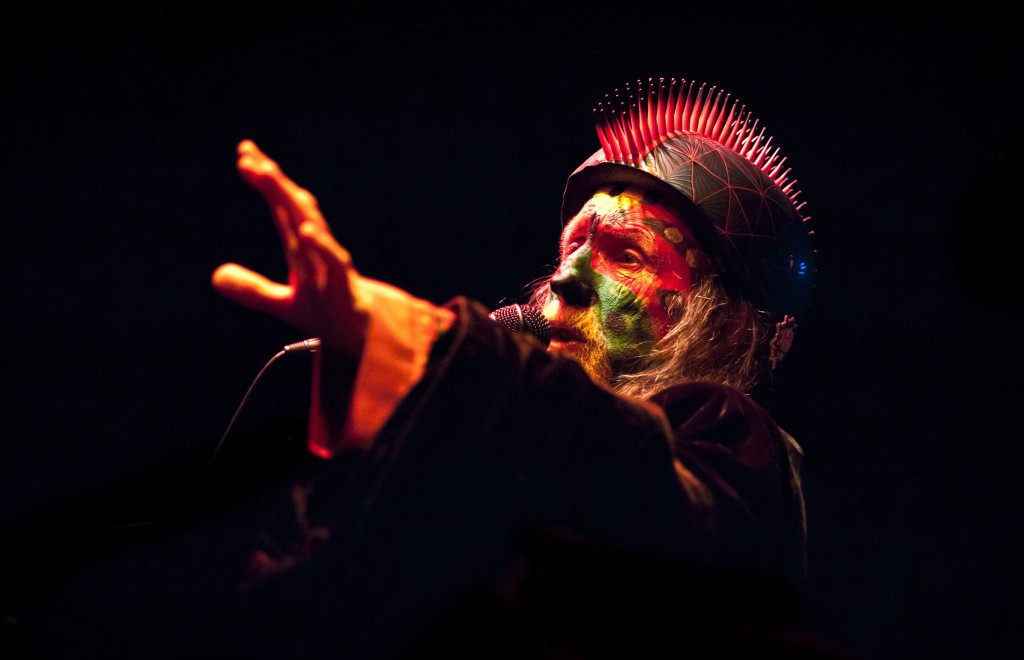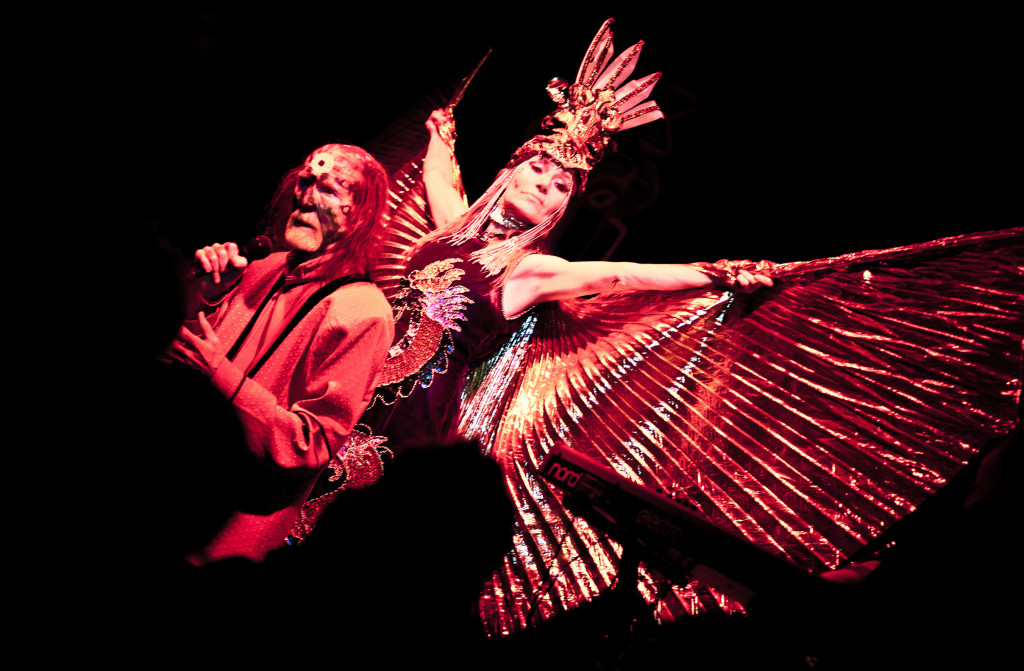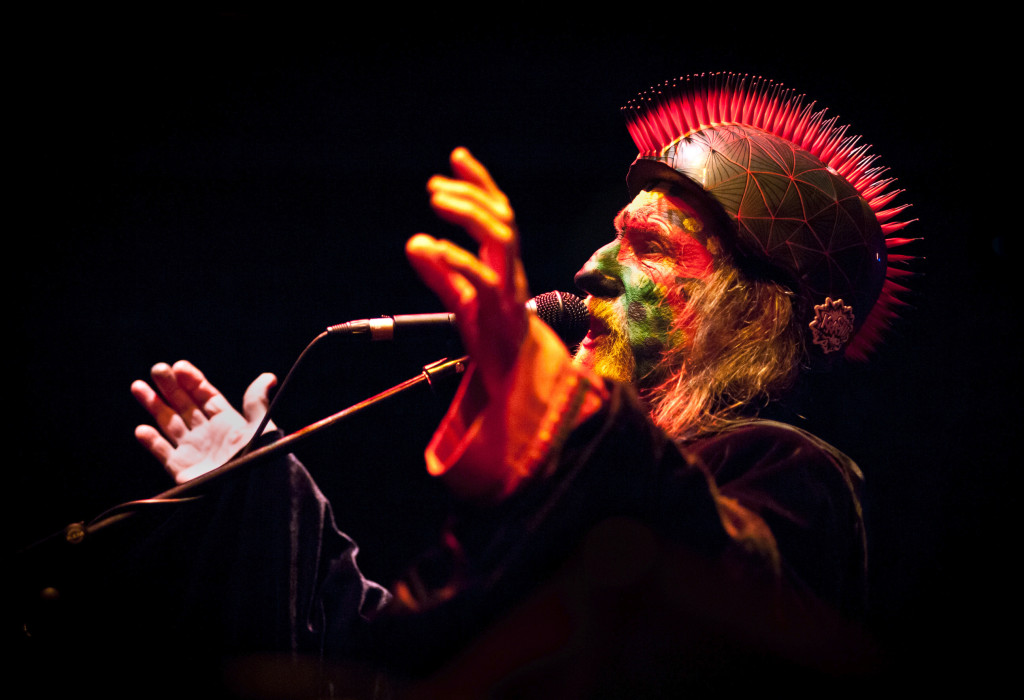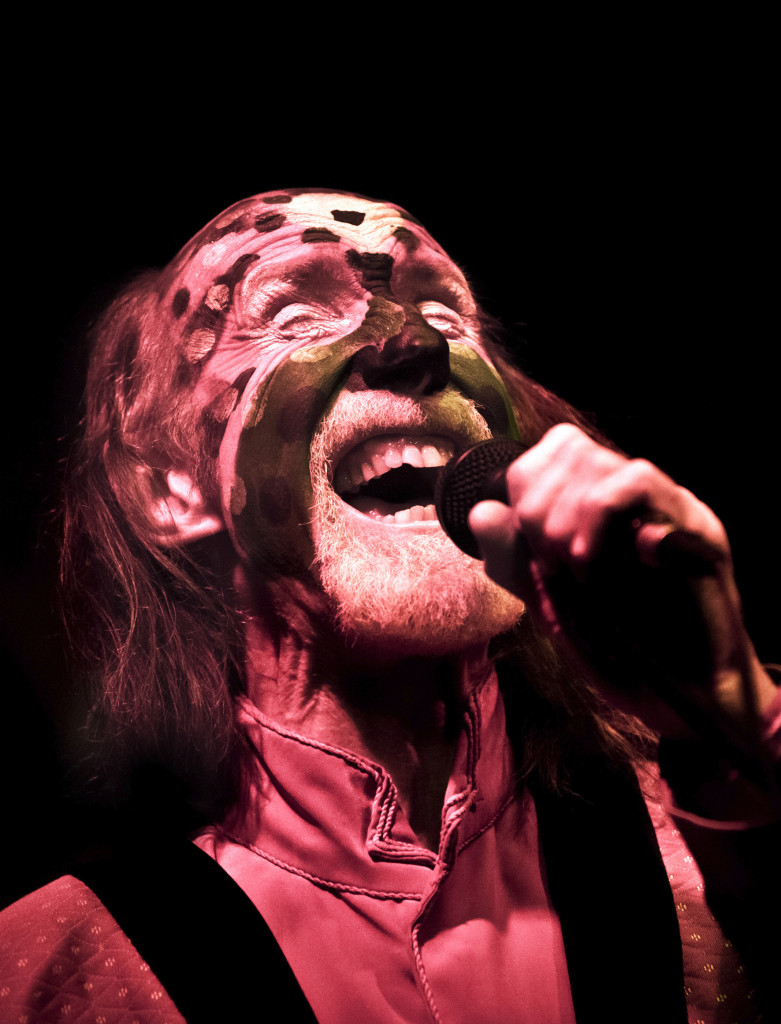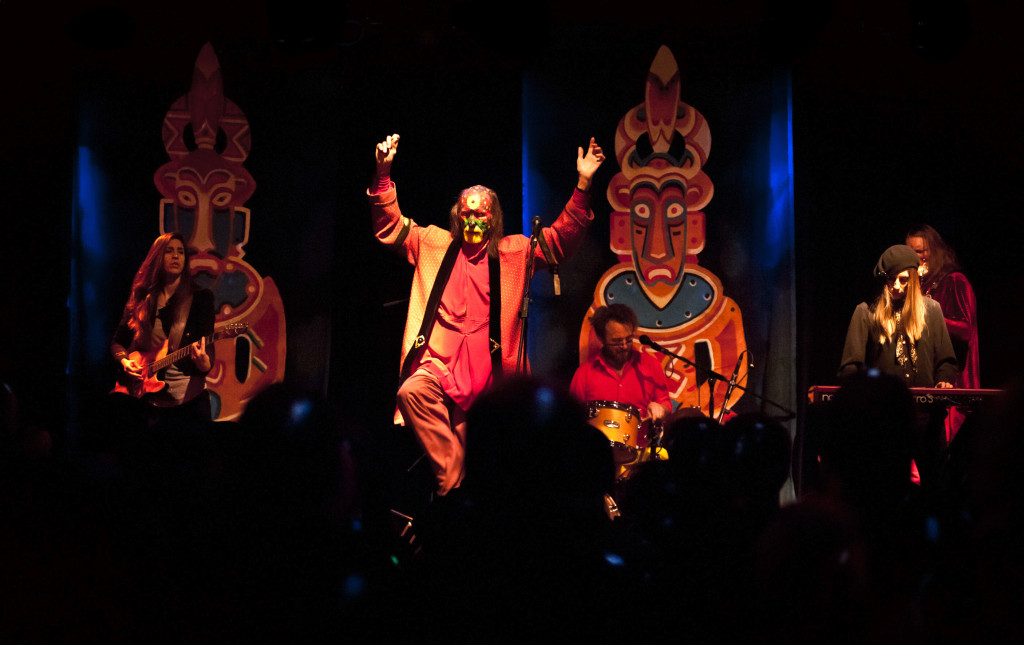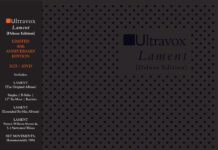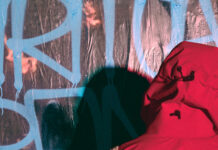The Crazy World of Arthur Brown’s new Album – ZIM ZAM ZIM
Arthur Brown is one of the forerunners of Hard Rock and Heavy Metal, not only because of his vocal style, but also for the themes and the esthetic associated with these genres -fire Helmet included-. Ozzy Osbourne, Alice Cooper, Bruce Dickinson and Marilyn Manson -to name a few- refer to Arthur as a big influence. He has always been a visionary and, not being enough to kick start Hard Rock with his band The Crazy World of Arthur Brown, he also pioneered electronic music, being the first musician to use a Drum Machine. Brown is an artist that doesn’t measure success with the traditional indicators of our society -fame and fortune- instead his real success has been to capture in the music his eternal quest for the essence of humanity. Now in 2014 and being 72 years old, far away from running slow, he published a new record “Zim Zam Zim” financed by a Crowd-Funding project (PledgeMusic). The album is a Masterpiece that condenses over four decades of Arthur’s artistic interests in a very up to date record that is an exquisite portrait of the times we are living.
It’s Saturday morning and I join Arthur in a Hotel in the east of Berlin to chat during breakfast. An encounter with Arthur Brown is something special. It reminded me of another I had more than a decade before with the great French mime Marcel Marceau, one of the greatest artists of the XXI Century. Both of them inspire peace when talking to them and their words are full of wisdom and a profound knowledge of themselves and the human being that most of us wouldn’t even dream of.
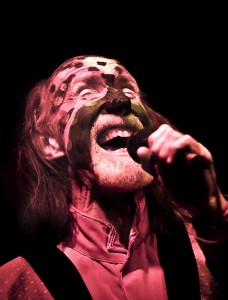 Arthur a lot of people -including myself- think that you were fundamental for what Hard Rock became in the seventies. Do you share these thoughts?
Arthur a lot of people -including myself- think that you were fundamental for what Hard Rock became in the seventies. Do you share these thoughts?
Well, at the time when we were doing it, of course it was just what we were doing and then other people heard it and began to sound a bit like it. I listened to blues, soul and electronic music and was influenced by the English musicians that came before me like Rod Steward, Julie Driscoll, Brian Auger or Long John Baldry. The thing was that when they were playing it was a smaller audience. I was lucky I came on at a later time. The underground became the big thing so there I was. To me there is like an endless chain in music and yes, stylistically, I did influence a lot of people with the Crazy World start on Heavy Metal and later on with the use of the drum machine and electronic music. I like to see it as part of a whole thing that was going on. Everybody that when to the UFO tended to listen to everybody else in UFO. (e.n.: UFO – popular club in London at the end of the 60’s where bands lie Pink Floyd, Soft Machine, The Move, Arthur Brown, Eric Burdon, Jeff Beck o Ten Years After used to play). There were all kinds of bands there, so there was an influence all around. I was surprised later to look back and see that I influenced other musicians. I remember going to see my father, it must have been around 1970, and to my surprise he said to me when I walked in: “all those bands like Deep Purple, they sound just like your band” and I though: “He’s actually been listening” (laugh).
That’s the best compliment that you can get from a father…
Yes, because he was a self-taught jazz piano player who was good enough but with a very old fashion stile.
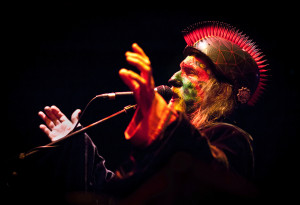 Why did you feel the need to put on a show, not just go there with a suit and a tie and just play music?
Why did you feel the need to put on a show, not just go there with a suit and a tie and just play music?
Well, in the early times just before the Crazy World I just stand there and really focused on the singing and the music. When I got to Paris to play at the Bus Palladium, on the first two nights -till they realized how much we were going to drink- they gave us free drinks. We drank 90 bottles on the first night (laugh). It was a very experimental club -in France they like wild singers- so by the end of the first week I started do some crazy things and then the audience in the club went crazy. I started to swing from the rafters and then that let me move around a lot. We were playing so much that we haven’t got time to rehearse and as we didn’t want to put always the same show two things happened: We started to make some of the numbers longer and improvise, the other thing was that -quite natural- I like to make fun so I started to wander around the club and find things to use like a prop and it started developing…At the hotel where we were staying there were a lot of prostitutes and they used to have these wild parties. One morning when I opened the door I find a crown with candles in it that somebody had left from the party. That night I took it to the club, put the crown and lit the candles on stage…
And that’s how the Fire Helmet started…!
That’s the origination of it…and then all the people that went to the club, like Salvador Dalí, the great jazz player Roland Kirk or the Beatnicks started to appreciate it. At the time I also went to the Olympia and saw James Brown. His relationship with the audience was like a gospel thing but not to do with religion. When I saw that I understanded how you can relate with the crowd, they want to do whatever you let them do. If you got the freedom yourself, they will do it. When he came on, he had this thirty-six piece band and each raw had a different coloured suit and when the colours of the lights changed it made the suits seem from a different colour, after that I started wearing the costumes.
And you were also writing about themes that were not treated by the average rock band…
When I came back to England I started writing my own songs. My father introduced me to meditation when I was twelve, so the kind of things I was interested in were not: “Baby I wanna fuck you all night”. I thought: “What happens if I look inwards, what would I find?”. I realized that if I wanted to write that stuff I needed to write it with images otherwise people weren’t going to get it because they were expecting “fuck you baby all night long…”. I thought: “I’m going to wear a costume and create a character, like The God of Hellfire, with flames” and then they got it. I did that with all the characters and that’s how the show started.
How’s your relationship with someone like Bruce Dickinson, I know he is a big fan from you…
Well, I haven’t spoke with him for about six month. I get on very well with Bruce and his wife Paddy, they like all the new age philosophy. Bruce is a very remarkable man with a very sharp mind and with many different talents. He has been very helpful to me. He is also a little bit crazy…there was one time, he was in England and needed to flight to America for a show. He calls his wife around 5:30 in the morning telling her that he is very nervous because the train station is closed and he can’t find a bus to take him to the airport and is going to miss his flight. And she said: “Bruce you are a fucking millionaire, get a taxi!” (laugh).
He always says that you are one of his biggest influences…
He said that to me too. At one of our shows the cleaning lady came in and she said: “There’s Bruce Dickinson here to see you”. And I answered: “tell him I’ll see him later”. And she said: “You don’t know who he is, do you?”. I didn’t know who he was and she explained that he was the lead singer with Iron Maiden. The first thing he ever said to me was: “You’ll never know how many millions I made out of what I got from your music…”. I though: “well that’s a great opening line” (laugh). He has always been very honest about it and what helped him on his career. It is very nice that he keeps saying it. …
You got this big hit “Fire” (1968) and later, although the quality of your music remained intact, the media attention and record sales went quieter. How do you feel about your career?
At a certain point I didn’t really want to play that industry game. One of the things that broke the Crazy World was that in 1969 after our first album I turned down a deal that we got with Clive Davies (e.n.: president of Columbia Records at the time) who said: “This record that you just have made, with me would have been a number one”. I decided to stay with Track Records, they were the ones who saw what we were doing an put us on the top. I turned down 2/3 of a million pounds and the band said: “What? You’re fucking mad!”.
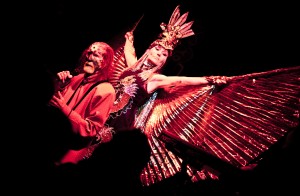 And not thinking about money as an important thing had to do with your spiritual quest?
And not thinking about money as an important thing had to do with your spiritual quest?
I’ll tell you what actually happened: when “Fire” was a big hit at the end of 1968 I went to America and at the time there everybody was looking for spiritual answers. I would quite often come back to my hotel room and there will be twenty people already in my room waiting for me. They would say: “We have been listening to your record, what is life? What is death? What is the meaning of suffering? For about three weeks I told them these answers and I though that I was very good, very clever. One day I realized that what I was telling them was absolute shit, I didn’t know anything in that area. I though: “I will go and find all the things they ask me about: truth, beauty, the meaning of life, death, suffering, and then when I found it I would put it in the music”. Then I went into all the different meditation systems, in Africa, in the Middle East, different meditations, different spiritual disciplines, sometimes for two years, sometimes for three years, and all the time I would come back and do some bit of music and go back. It wasn’t until two years ago that I no longer needed to search. I got nothing, I lived in a yurt so then I though: “Now what? Here I am, the world is here. This is a beautiful but strange world, what shall I do now? Well, I have time and it looks like I have to fill up this time. What I’ll do is have a good band and I’ll do what I though I would do when I was young: just put all this into the music”. From then on, each moment is fresh, each moment is a revelation, there’s no need to belong to big movements and drives and philosophical and political positions. Each moment has it’s own beauty and so that’s how we perform now.
It is a fantastic band and it was great to see them play, you all have so much fun doing it…
Exactly, we are in the moment, not thinking about anything else.
You are playing a fantastic version of “Devil’s Grip”…
I remember Nik Cohn, the famous writer and Rock n’ Roll journalist, always saying that “Devil’s Grip” is a much better song than “Fire” (laugh). You don’t have to agree with him…
I think they are both on the same level. Great songwriting and very iconic songs…What brings me to your new record “Zim Zam Zim” which I think is one of your finest albums…
The new album is a collaborative album. I sat down with Jim Mortimore, the bass player, and Sam Walker and we agreed that we needed to do a new album and that it would be nice to visit it in the way when Johnny Cash was making his final album. The guy (Rick Rubin) said to him: “No good doing these happy Christian songs, you need to show how you survived suffering and the dark, because that’s what people relate to in you”. We decided that we needed to do that for me, find out what was original in the music and bring that with all the influences that Sam and Jim got through being young people exposed to all the stuff that they now listen to and somehow bring all these influences together into the music. Sam and I did a lot of the lyrics together and he said to me: “Every morning text me what’s in your mind”, after that he got like fifty messages…When you create a whole new universe in an artistic piece and you really make a connection with it, then that starts to come into your daily life. Things that were parts of the story of “Zim Zam Zim” from the future are now coming into real life. Part of the story on it is coming to the same point in consciousness and then being able to live together in a different, more cooperative and accepting way and it’s happening in the band itself as well.
You financed the album through Crowd-funding (PledgeMusic), what can you tell me about this experience?
We had a very good agent in England and I happened to go with him to an award ceremony and there somebody received an award for doing a crowd-funding thing. He got the idea to do that for us and that became a process. It’s a very time-consuming process. If you have a record company you make your record and then it goes out. With the pledge there is an enormous amount of work to do but it has become a modern way of doing things and a more cooperative way between all the people involved.
And now you are the owner of your music…
Absolutely, we will sell it to the Chinese government (laugh) and then it would become popular over here, and they will sell it back to everyone (laugh).
You are 72 now and you have the energy of a young man. What is the secret of your vitality?
I don’t go around thinking about the future and the past, thinking: “Am I still as important as I though I was?” or “in two years will I have nothing?”. It’s a waste of time so I save all the energy for this moment. If you don’t let your mind be boxed by the social conditioning and even parental conditioning then you don’t have this concept of yourself as “growing old” and the mind stays fresh. The body and the mind are one thing, they are not separated, so if your mind is fresh and open, the body stays fresh and open. Of course you need to do things to discipline the body whether it’s something like yoga or some sport. I do a daily program with lots from different disciplines. When I was young in England everybody sang, they where all singing while they were working. When we went to school, we all sang, the first thing in the morning. Singing is a direct energy giving to the brain; it heals most of the illnesses of stress. I’m lucky that’s what I get paid to do (laugh).
Interview an pictures: Nicolas Coitino



